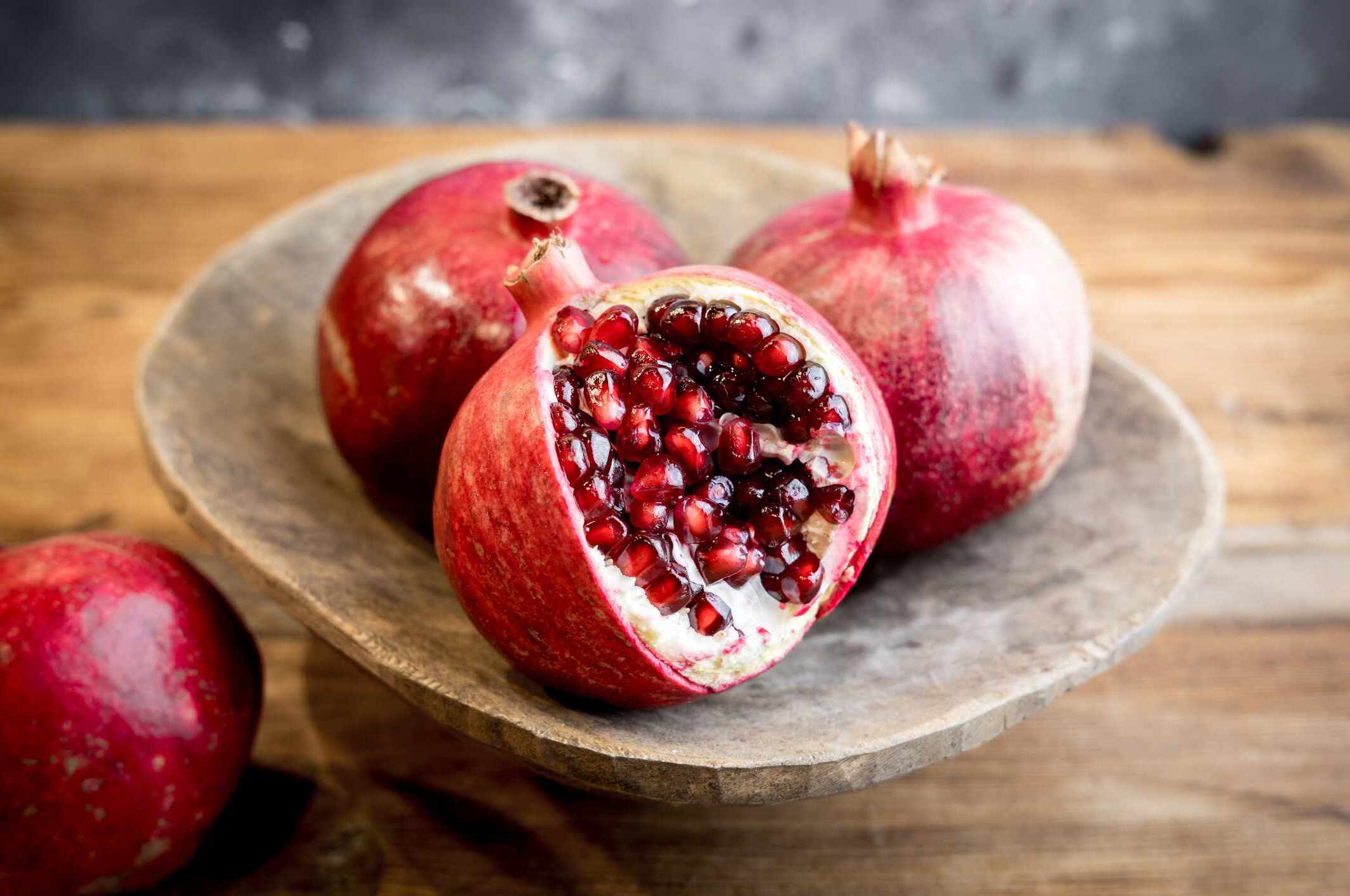
Pomegranates are more than just a tasty fruit; they pack a punch with their health benefits and rich history. Did you know pomegranates have been cultivated for thousands of years? Ancient civilizations revered them for their medicinal properties and symbolic meanings. Today, they are celebrated for their high antioxidant content, which can help fight inflammation and lower the risk of chronic diseases. But that's not all! Pomegranates are also a great source of vitamins C and K, fiber, and potassium. Whether you enjoy them as juice, seeds, or in a salad, there's no denying their versatility. Ready to learn more? Let's dive into 30 fascinating facts about this incredible fruit!
Key Takeaways:
- Pomegranates are a nutritional powerhouse, packed with vitamin C, fiber, antioxidants, potassium, and folate. They offer numerous health benefits, from lowering blood pressure to inhibiting cancer cell growth.
- Pomegranates have a rich historical significance, dating back to ancient civilizations and playing a role in various cultures and mythologies. They are also versatile in the kitchen and can be grown in hot, dry climates.
Nutritional Powerhouse
Pomegranates are not just delicious; they pack a punch when it comes to nutrition. Here are some facts about their nutritional benefits.
- Pomegranates are rich in vitamin C, providing 40% of the daily requirement in just one serving.
- They contain fiber, which aids in digestion and helps maintain a healthy gut.
- These fruits are loaded with antioxidants, which protect cells from damage and reduce inflammation.
- Pomegranates have potassium, essential for heart health and muscle function.
- They are a good source of folate, important for cell growth and metabolism.
Historical Significance
Pomegranates have been around for centuries and hold a special place in various cultures and histories.
- Ancient Egyptians used pomegranates in burial rituals, believing they symbolized life after death.
- In Greek mythology, pomegranates are linked to Persephone and the changing seasons.
- The fruit is mentioned in the Bible and the Quran, highlighting its long-standing significance.
- Pomegranates were cultivated in Persia (modern-day Iran) as early as 3000 BCE.
- They were introduced to the Americas by Spanish settlers in the 16th century.
Health Benefits
Beyond their nutritional value, pomegranates offer numerous health benefits that can improve overall well-being.
- Pomegranate juice may help lower blood pressure due to its high antioxidant content.
- The fruit has anti-inflammatory properties that can reduce symptoms of arthritis.
- Pomegranates may improve memory and cognitive function, especially in older adults.
- They have been shown to inhibit the growth of cancer cells, particularly in prostate and breast cancer.
- Pomegranates can boost heart health by improving cholesterol levels and blood flow.
Culinary Uses
Pomegranates are versatile in the kitchen, adding flavor and nutrition to various dishes.
- Pomegranate seeds, or arils, can be sprinkled on salads for a burst of flavor and color.
- The juice is often used in marinades and sauces for meats and vegetables.
- Pomegranate molasses, a thick syrup, is a staple in Middle Eastern cuisine.
- The seeds can be blended into smoothies for a nutritious boost.
- Pomegranate extract is used in desserts like cakes and pastries for a unique taste.
Fun Facts
Pomegranates have some quirky and interesting aspects that make them even more fascinating.
- The name "pomegranate" comes from the Latin words "pomum" (apple) and "granatum" (seeded).
- A single pomegranate can contain up to 1,400 seeds.
- In some cultures, pomegranates are considered a symbol of fertility and prosperity.
- The fruit's juice can be used as a natural dye for fabrics.
- Pomegranates are often used in weddings and festivals as symbols of abundance and good luck.
Growing Pomegranates
Interested in growing your own pomegranates? Here are some facts about their cultivation.
- Pomegranate trees thrive in hot, dry climates and are drought-tolerant.
- They can be grown from seeds or cuttings, though cuttings are more reliable.
- The trees can live for over 200 years, producing fruit for many decades.
- Pomegranates require well-drained soil and full sunlight to grow optimally.
- Harvesting typically occurs in late summer to early fall, depending on the region.
The Final Bite
Pomegranates aren't just tasty; they're packed with antioxidants, vitamins, and fiber. These ruby-red fruits have been cherished for centuries, not just for their flavor but also for their health benefits. From boosting heart health to potentially fighting cancer, pomegranates offer a lot more than meets the eye. They can be enjoyed in various forms, whether as juice, seeds, or even in cooking.
Adding pomegranates to your diet can be a delicious way to improve overall health. Next time you're at the grocery store, consider picking up this versatile fruit. Your body will thank you.
So, whether you're a fan of their sweet-tart taste or their health perks, pomegranates are a win-win. Enjoy the benefits and savor every bite!
Frequently Asked Questions
Was this page helpful?
Our commitment to delivering trustworthy and engaging content is at the heart of what we do. Each fact on our site is contributed by real users like you, bringing a wealth of diverse insights and information. To ensure the highest standards of accuracy and reliability, our dedicated editors meticulously review each submission. This process guarantees that the facts we share are not only fascinating but also credible. Trust in our commitment to quality and authenticity as you explore and learn with us.


